Black is Good! Black Panther in Perspective
Zion. Zamunda. Wakanda.
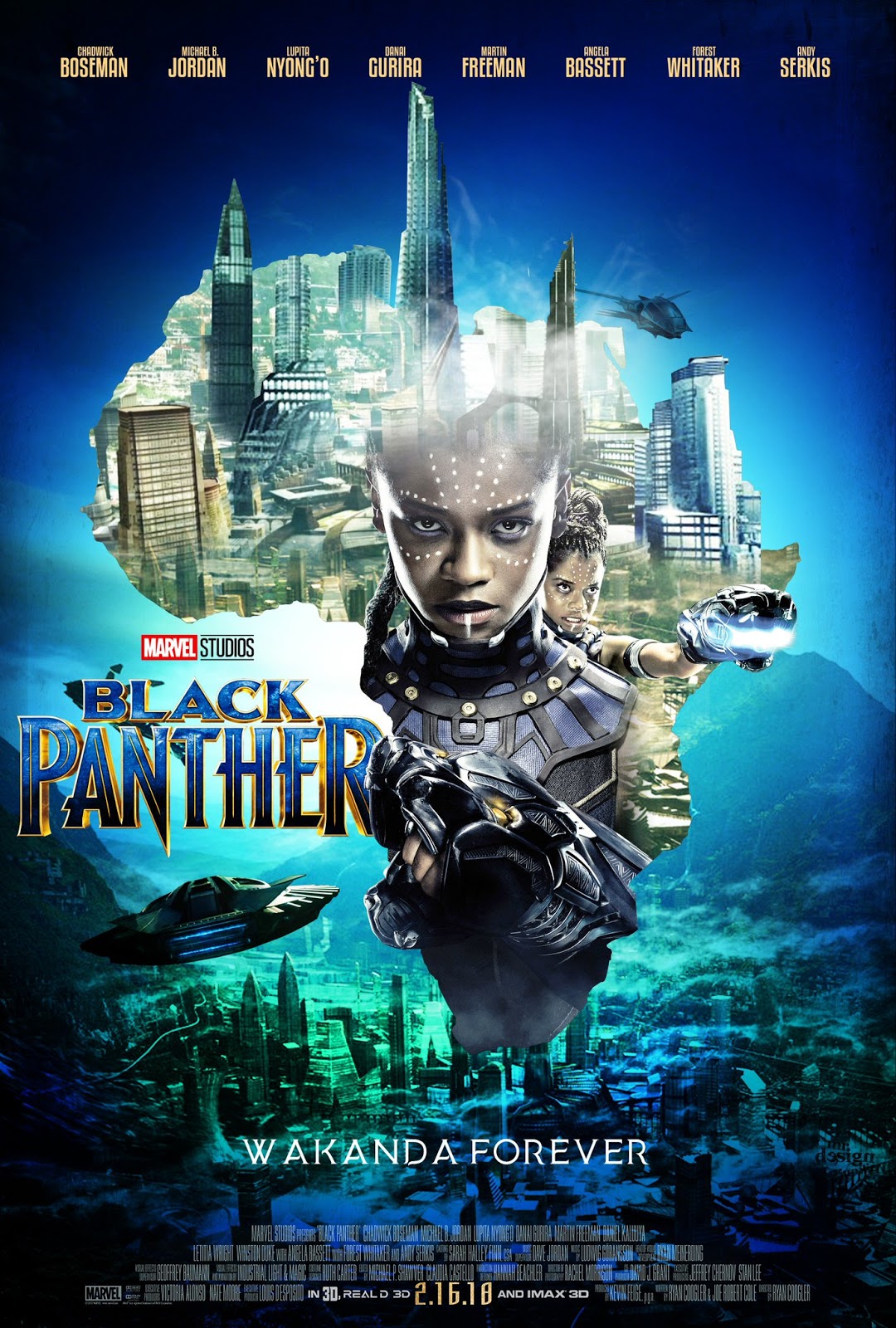

All fictional places in film with memorable and history-making story lines. Zamunda was the mythical kingdom characterized in Coming to America, one of Eddie Murphy’s finest efforts. In The Matrix, Zion was the home base of pioneers fighting artificial intelligence agents seeking to exploit humans trapped in a computer simulation. In all three movies, people of African descent are prominent and presented in a very positive light.
Black Panther took theaters by storm on February 16th breaking all types of records for pre-sold tickets. It then broke U.S. records for first week gross receipts passing $292 million. By the fourth week, it has breached $1 billion including a massive following internationally. Many theaters around the world were bustling with events that appeared to be more like an African fashion show complete with drummers, dancers and of course African cuisine. It has been a rousing success within the African Diaspora and it is anticipated that the movie will collect a handsome haul in next year’s Oscars.
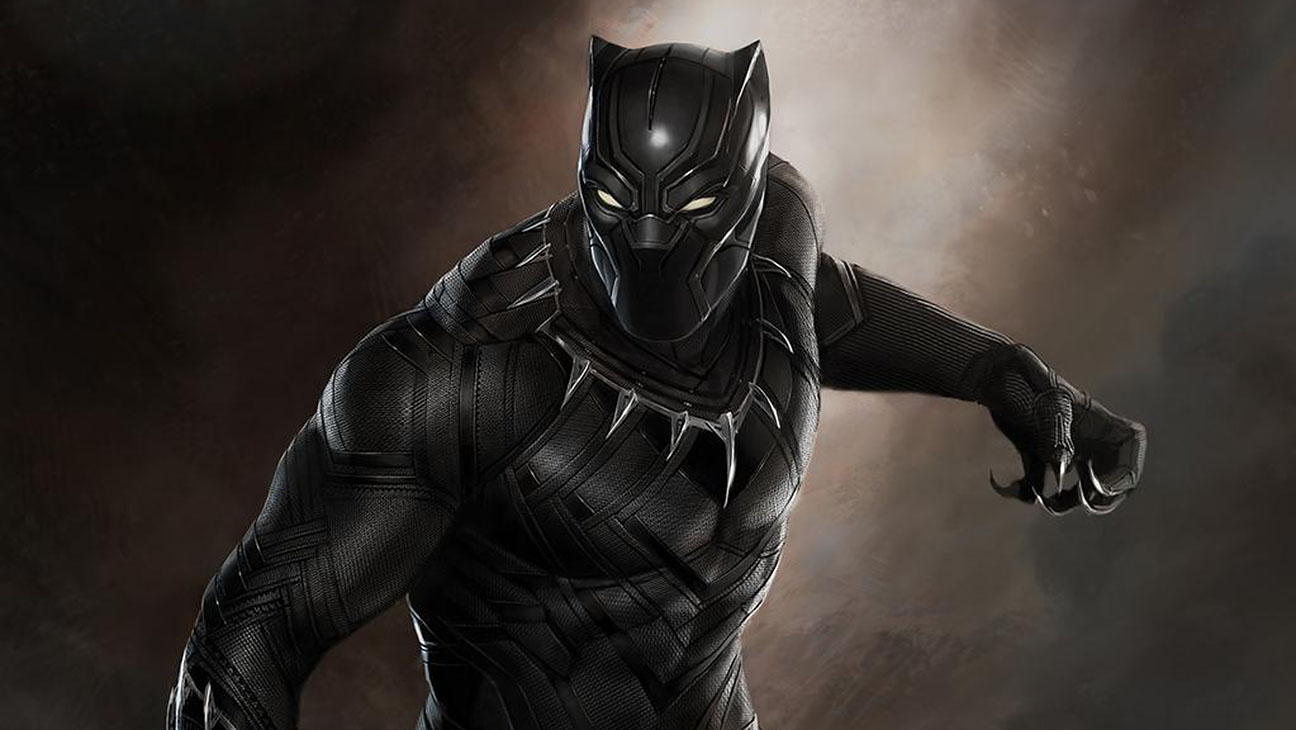

What has spawned such an explosion of interest in this theatrical rendition of a comic book superhero. Was it the story? Was it the costumes? Was it the underlying socio-political and cultural significance? Perhaps a combination. It is a place that people of Africa descent has envisioned for centuries… Pan-African cooperation, futuristic thinking and holistic living.
Wakanda is a fictitious African country fueled by a precious substance vibranium which had meteorically fallen on its land. This mysterious substance not only gave the city its source of energy, but would also be what would catapult Wakanda into a first-rate superpower. Wakanda had masqueraded as a poor developing country while harboring mind-blowing technology which included vibranium-powered weapons, advanced airships, levitating trains, holographic piloting and restorative health science. The country also made use of kinetic energy which contrasted with the natural beauty accented by tumbling waterfalls and exotic foliage.
In this enigmatic country, there is a very intricate social system with tribes united by the Black Panther heir, King T’Challa. His father King T’Shaka was killed during Captain America: Civil War in a terrorist blast while speaking at the United Nations. The Black Panther possessed special powers after being given a concoction from vibranium-mutated, heart-shaped plants administered by the wise sage, Zuri. This included an indestructible vibranium-powered cat suit. If one looks closely, the setting of Wakanda and its impressive architecture is symbolic of the ancient African kingdoms such as Egypt and Mali. Even the use of animals as powerful symbols seem to point to a historical significance.
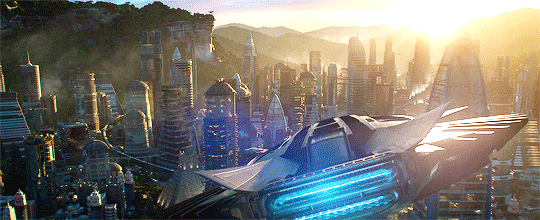

The kingdom of Wakanda was protected by the Dora Milaje, a fierce regiment of female warriors. Their role lead to an interesting discussion on geopolitics, social order and gender roles. Okoye, the general of the force, commands a presence with a shaved head and Maasai-inspired outfit. There was a welcome explosion of aesthetics including body art featuring various hair styles, body paint and scars, lip plates, beads and other accouterments. It was a beautiful mosaic of colors and textures that escaped judgement of western standards.
What has made the cinematography so vivid is the cross between human ingenuity and unadulterated beauty of nature. Even today, African nations hope to find the delicate balance between the two that makes Wakanda so alluring. Unfortunately, colonial structure of trade has resulted in a continent reliant on agriculture and mining industries primarily for the benefit of others. In the Black Panther, we enter a new world where Wakandans had not been colonized. One may ask, “What would Africa be like today if colonization and slavery had not happened?” Some have envisioned a place like Wakanda.
Here is the trailer…
Despite the spoilers that follow, the point of this article is not to serve as a review of Black Panther. There are already dozens of them floating around in social media from the comical desciptions to those evoking serious intellectual discourse. What follows is an attempt to lay out some topics for discussion and perhaps talk about how these issues can contribute to an overarching strategy to help foster Pan-African unity.
What lessons can we draw from Black Panther? There have been a number of efforts to take some of the positive energy and channel it into positive action. The concept of “Afro-futurism” takes hold in a Utopian country where intellect has blossomed to create a technological behemoth. For decades, media has been replete with Tarzan images of Africa. Of course, the fictitious Zamunda in Coming to America showed fantastical opulence, but there was a realism surrounding Wakanda in Black Panther.
Wakanda was no less grandiose and brought a semblance of tremendous pride in African identity. The movie is closing in on the one-month mark and there has been an overwhelming amount of positive energy radiating throughout the African Diaspora. In the romantic comedy Coming to America, there were some serious cross-cultural issues highlighted, but in the end a Pan-African marriage served as a beautiful symbol of hope. There remains a serious question on the table. Will this movie result any conciliatory efforts within the African Diaspora?
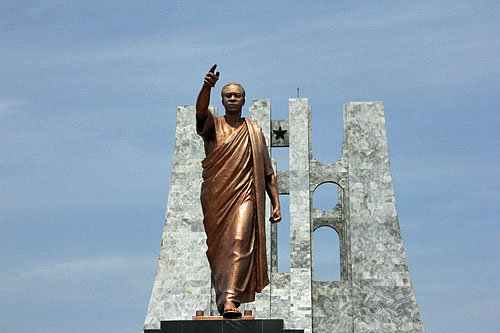

Dr. Kwame Nkrumah of Ghana pointing to the Ministry of Justice building where he signed the proclamation for independence. Dr. Nkrumah was a main proponent of continental African unity and drew lessons from the Black struggle in America where he was a student at Lincoln University. After independence in 1957, he requested many Blacks from America to move to Ghana to help build the young nation. He adopted the black star in the Ghanaian flag as a reminder of Marcus Garvey’s Black Star Shipping Line, a Pan-African maritime network. Garvey was from the island of Jamaica, moved to New York and built the largest mass organization in Black history called the Universal Negro Improvement Association (UNIA). Photo by Daaim Shabazz.
Movies generally characterize African nations as dysfunctional, war-torn and disease-infested wasteland were animals and people co-mingle without any social coherence. Thus, there has been a hesitancy to express pride in African identity. Actresses like Lupita N’yongo have given us a idea of what one form of African beauty looks like. Her arrival on the scene has set the stage for other leading ladies of dark hue in an industry that is still skittish on “unconventional” looks.
Black Panther actually cast the continent in a very positive light and this may be the underlying reason for such celebration. Colorful garments have dotted the global landscape as various celebrations have taken place all over the world. What has also followed was a number of invigorating discussions and various reviews of the movie. While some will say that it is just another movie, all indications show otherwise. Following are some of the topics that have been discussed in the past month.
Pan-African Nationalism
There has been a lot of discussion on racial identity and nationality including the relationship within the African Diaspora. Incidentally, the cast was Pan-African covering nationalities from the U.S., Africa, Caribbean and Europe. The idea of Killmonger, who is half-Wakandan, serving as the nemesis to T’Challa was thrust front and center. While many bristled at his approach, Killmonger’s idea to eradicate oppression was noble. It was sort of an ode to the Black Panther Party of the 60s.
~Question raised by Killmonger to T’Challa in reference to the “Black struggle”
It is ironic that the superhero’s name was almost changed to avoid any association with the 60s revolutionary group. Nevertheless, Black Panther allowed people of African descent see beauty in a a full spectrum of colors and styles. This is a powerful symbol of inter-tribal unity (even romantic), a concept that has been difficult to achieve in present-day Africa. Even in Africa there is a reticence about expressing cultural pride to the world. Unfortunately, many African traditions are eroding as a result of globalization trends. This movie may provide a shot of needed adrenaline.
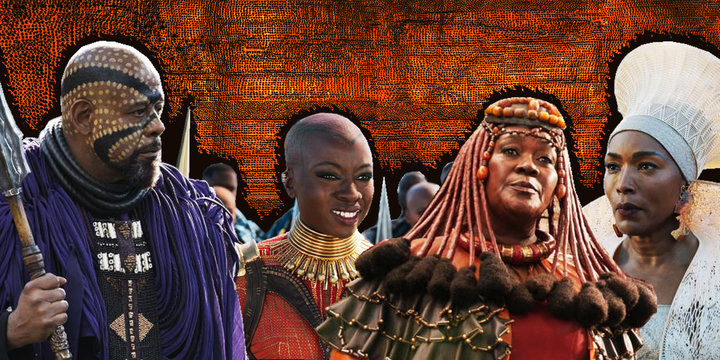

The cooperation of the tribes was vital during the reign of King T’Challa, but the arrival of Killmonger forced each tribe to reevaluate their committment. Okoye, Wakanda’s top soldier vowed to protect the throne but it was evident that she looked at Killmonger with great skepticism. In the end, it was a vanquished tribe of the vegetarian Jabari (Man-Ape tribe) who helped to save a gravely wounded T’Challa and usher him back to the throne. In a sign of contrition and collaboration, the Jabari ruler M’Baku stated, “A life for a life” as T’Challa had spared him in their battle.
International Relations
Who is allowed residence in Wakanda? On at least two occasions, outsiders were given medical residence in the African country. The arrival of Erik Killmonger also raised the question of how a Wakandan was defined. Killmonger was the son of Prince N’Jobu, who was killed by his older brother, King T’Shaka. Killmonger was left to discover his father’s body.
While it is true that Africa has historically been exploited for natural resources, it was N’Jobu who betrayed Wakanda by selling vibranium onto the black market to South African arms dealer Ulysses Klaue. This occurred in Avengers: Age of Ultron when artificial intelligence tried to use vibranium purchased from Klaue to destroy mankind. In Black Panther, Klaue even made a “sonic-disrupting” arm cannon with a vibranium energy source. Was there justification for thinking that Wakanda would lose control of the vibranium? Indeed. It happened in the movies, it happened in Africa’s past and it continues to this day… all with African collaboration. Did T’Challa have a point?
The result was a battle of wills between Killmonger, who wanted to launch a revolution against global oppression and T’Challa who wanted only to protect the kingdom of Wakanda. If Wakanda allowed migrants residency can it maintain its identity? W’Kabi, leader of the Border Tribe, asked this very question when T’Challa mentioned the possibility of opening the borders. Interestingly, Killmonger double-crossed (and killed) vibranium dealer Klaue and delivered his body to W’Kabi to prove his worthiness to Wakanda. The Border Tribe allowed him in.
~Question raised by River tribal leader pertaining to Killmonger
Killmonger set out to avenge his father’s death and vowed to claim the Wakanda throne from his first-cousin in a challenge match. One elder asked the question, “Is he Wakandan?” putting the question of whether an outsider, despite Wakandan ancestry, would be eligible to sit on the throne. This has ignited the question of whether other Africans in the Diaspora have a role in shaping the future of the continent. In fact, some Africans may believe that other Blacks are appropriating culture by wearing African garments! Such statements are apocryphal. In reality, the movie inspired a widespread expression of “African Identity.”
Gender
It’s interesting that the women seem to represent some of the strongest and smartest figures in Wakanda. This is consistent both with the symbolism of the Queen Mother in some of the matrifocal societies in Africa. In fact, the women of Wakanda were very self-confident, beautiful and in the most patriotic roles. They reassured King T’Challa in his moments of doubt and protected his honor even after he was disgraced.
Okoye, was the ultimate warrior, fiercely loyal and demonstrated the range of her powers from the incredible fighting scenes to guiding the Wakanda craft with metaphysical powers. Shuri, T’Challa’s 16-year old sister, was a scientific genius and helped Wakanda realize the true power of vibranium. This is in a time when girls are woefully underrepresented in the STEM subjects (science, technology, engineering, math). Shuri’s message was clear.
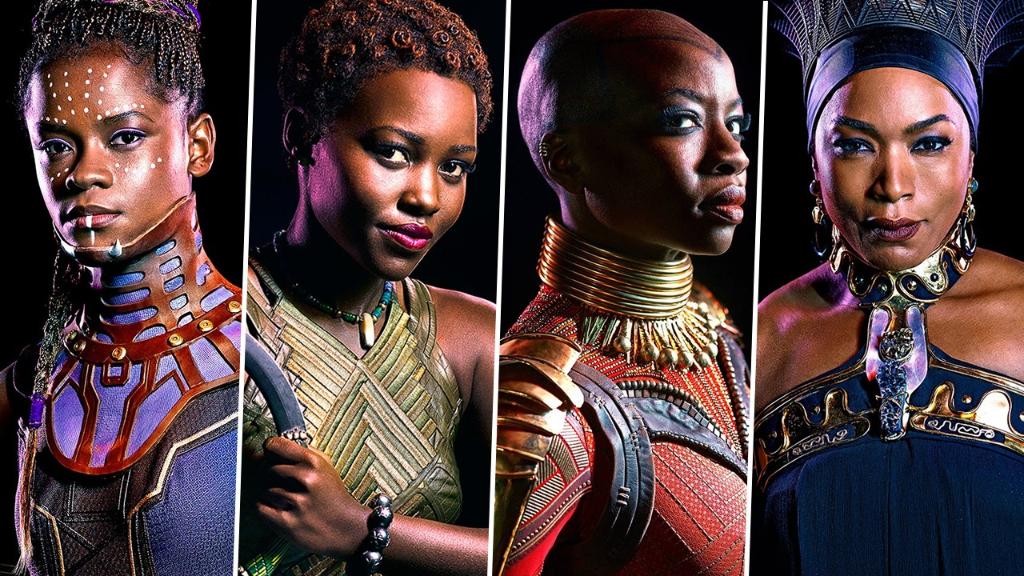

The Wakandan Women
Princess Shuri, Nakia, General Okoye, Queen Ramonda
As Queen Ramonda stood as the matriarch, she ultimately agreed to side with the tribe who refused to unite under her son’s rule. The idea that the characters expressed themselves through natural African beauty eschewing the wigs and foreign standards of beauty was refreshing. Was a message being sent in response to the trend of long weaves and wigs within the African Diaspora?
Angela Bassett played a regal role and as a widow, the greatest influence in the kingdom. Her presence was reassuring and added dignity to the cast. Not only were Wakandan women beautiful and smart, but also graceful. This gallant presentation of Black woman played a role in the beautiful and elegant garments donned during the initial weeks of the movie’s release. Will this set off an African-inspired cultural revolution seen in the 70s?
The Wakanda Strategy
While Wakanda was isolated from the world, they healed at least two foreigners. After the CIA agent Everett Ross was seriously wounded and healed in Wakanda, he played a role in the rebellion to reseat T’Challa to the throne. While the notion of an Pan-African kingdom was ideal, the underlying notion is that a foreigner (and CIA operative) was necessary for Wakanda to restore order, even in an ancillary role.
Bucky Barnes, who was compromised by the Russians in Captain America: Civil War, was seen (after the credits) healing from his brainwashing in a Wakandan hut. After Killmonger’s death, was T’Challa’s pronouncement of sharing Wakanda technology a good one? There seems to be a hitch in this story.
The intersection of racial identity, class, gender and politics are prevalent in this 135-minute film. It invigorates an age-old discussion of geopolitics and social evolution. With people of African descent seeing the world evolve so quickly, this movie provides some focus on what we can become. External ties to Europe and America and dependency on international financial institutions (IFIs) like the International Monetary Fund and the World Bank must be reevaluated. Africa’s ability to chart an independent course of development will rely on new relationships. Perhaps, the relationship within the African Diaspora is the first to be fostered.
In the movie, Wakanda was a first-rate power. What would happen if such an African nation existed? The movie is a fantasy, but so are revolutionary ideas until they come into fruition. L.P. Jacks once said, “Ideas never coupled with action are never bigger than the brain cells they once occupied.” Marcus Garvey’s UNIA never created the Utopian homeland desired in Liberia (due to subversive efforts by the U.S.), but the organization developed a powerful model.
Will the African Diaspora build the equivalent of a Wakanda? Will they erect a bridge to foster Pan-African unity? Will this be a defining moment as the world seems to be shifting its balance of power? Time will tell. Meanwhile we will see more of Wakanda in the coming Avengers: Infinity War… and Black Panther 2 is already in the works. The east is rising and… Black is good!
Images by Marvel Studios & The Walt Disney Company

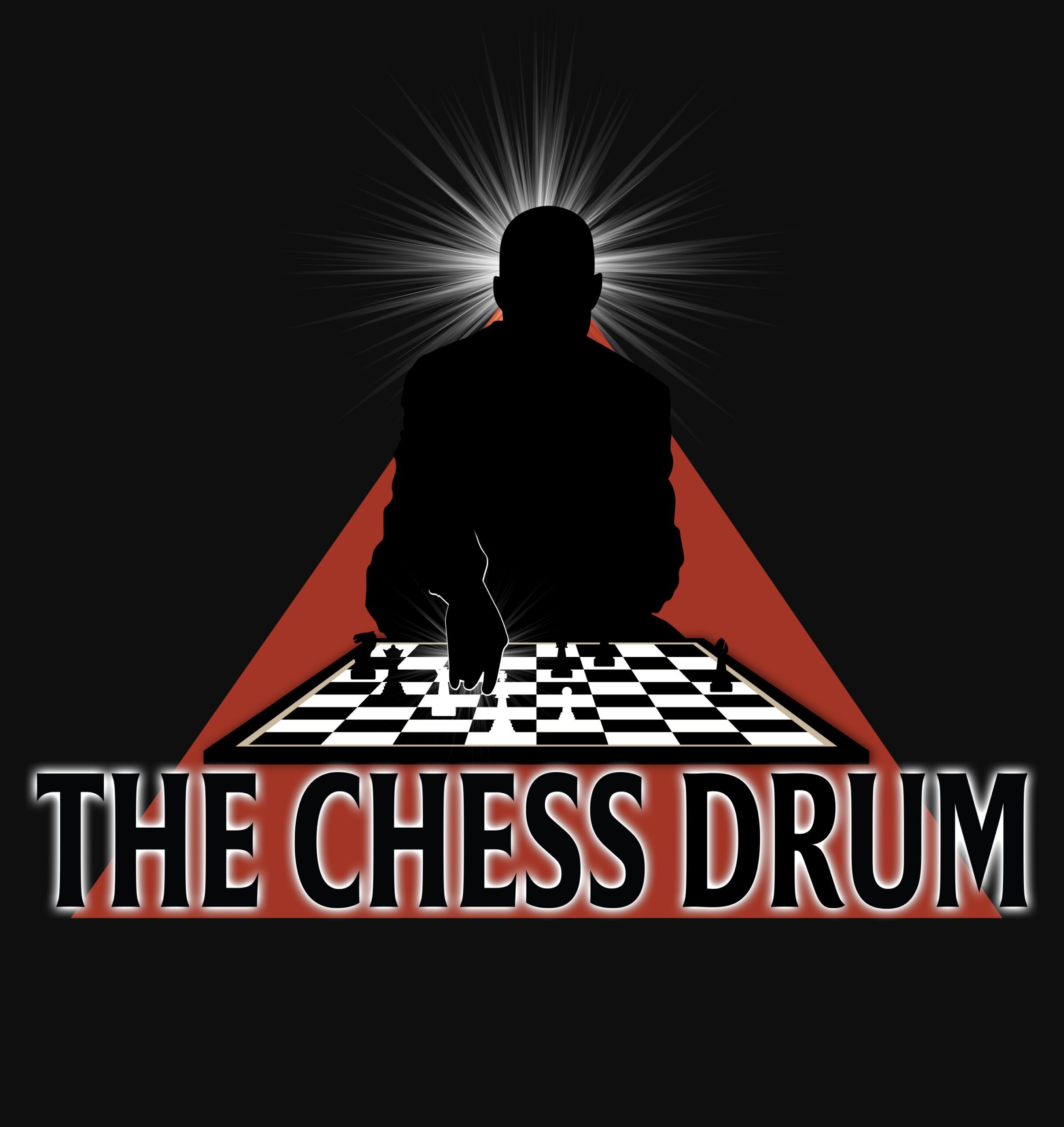
Enthusiastic Apollo Theater Audience
https://www.hollywoodreporter.com/heat-vision/black-panther-stars-share-black-pride-enthusiastic-apollo-theater-audience-1089341
I saw it with my wife! Very entertaining but it was a bit wide for me.
It was necessary to see some of the other preceding movies to get the context. I watched Avengers: Age of the Ultron and Avengers: Civil War after I saw Black Panther. If I had watched them before hand things would’ve been more clear.
Video Ahsante the Artist